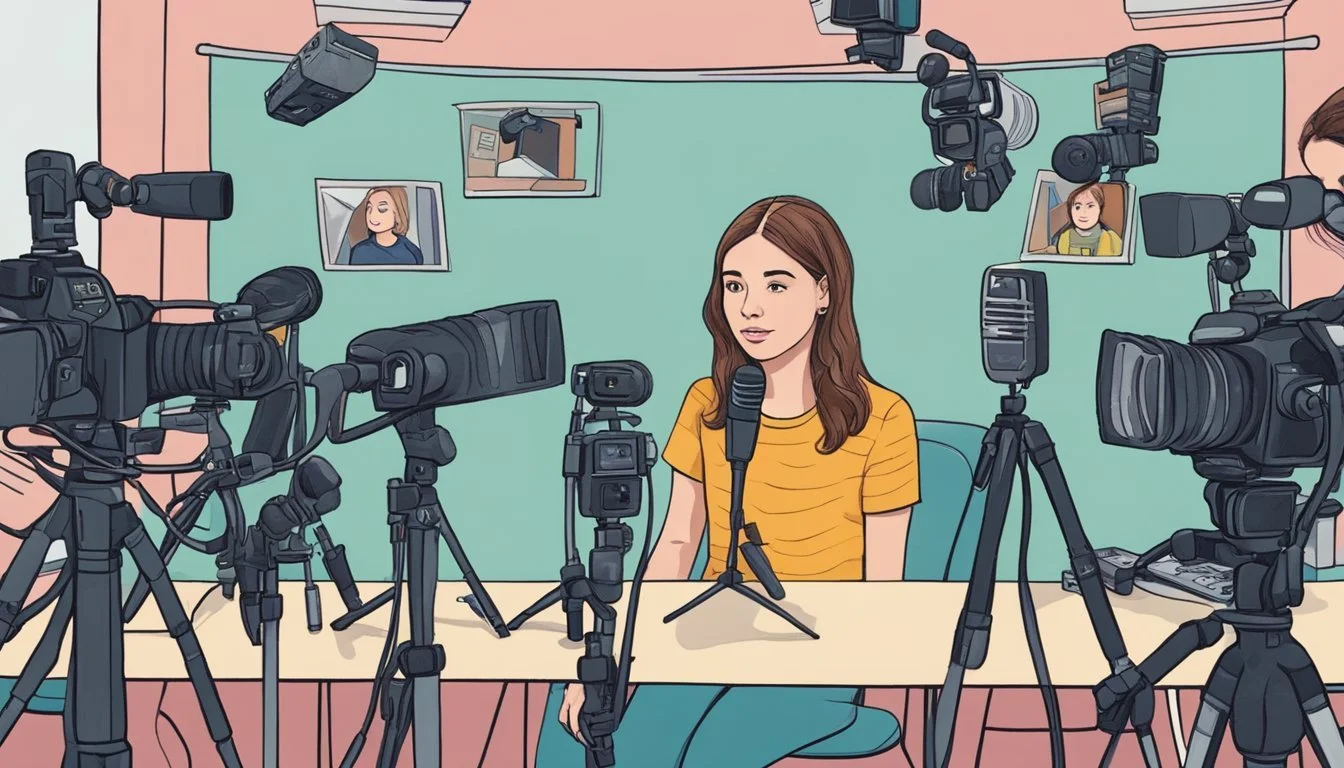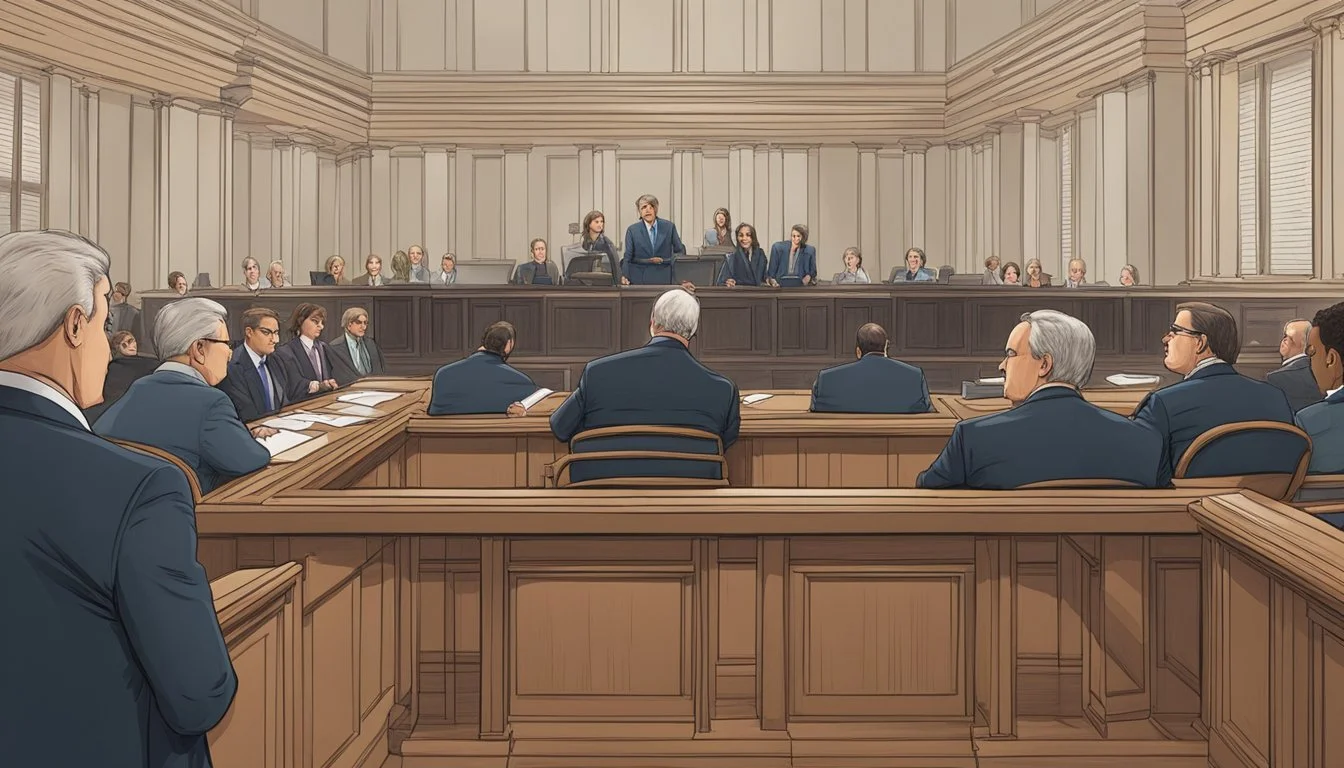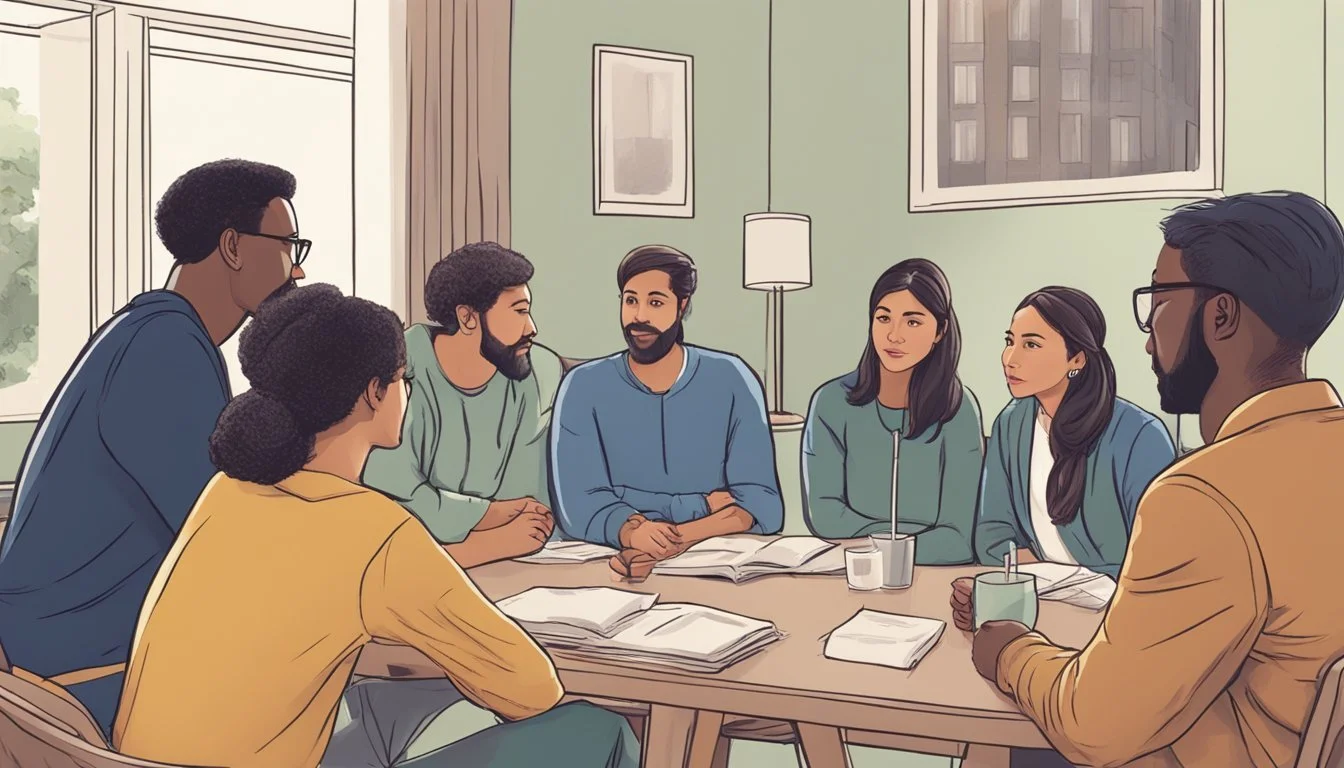Adopted 'Child' or Adult Con Artist? Natalia Grace's Twisted Tale Shocks America!
The Curious Case of Natalia Grace captivated audiences with its gripping portrayal of a real-life mystery surrounding a Ukrainian orphan. This docuseries delves into the controversial story of Natalia Grace, a young woman with a rare bone growth disorder who was adopted by an American family. The series explores the shocking allegations that Natalia, initially believed to be a 6-year-old child, was actually a fully grown adult.
The documentary provides extraordinary access and exclusive insights into the complex legal battles and conflicting claims between Natalia and her adoptive parents, the Barnetts. It examines the challenges faced by both parties and raises thought-provoking questions about identity, age determination, and the complexities of international adoption.
Following the success of the initial series, a follow-up titled "Natalia Speaks" was released. This continuation allows Natalia to share her perspective on the events, addressing the controversies and shedding light on her experiences. The docuseries has drawn comparisons to the 2009 horror film "Orphan," further fueling public interest in this unusual and compelling real-life story.
Background of Natalia Grace
Natalia Grace came to public attention as a Ukrainian orphan adopted by an American family. She was believed to be a 6-year-old girl with a rare bone growth disorder when the Barnetts adopted her in 2010.
The Barnetts claim they later discovered Natalia was actually an adult woman posing as a child. This shocking revelation led to legal battles and widespread media coverage.
Natalia's true age and origins became the subject of intense debate and investigation. Medical experts provided conflicting opinions on her actual age based on bone density scans and other tests.
The case raised complex questions about international adoption processes and the challenges of determining age in some medical conditions. It also highlighted issues around support for adoptive families facing unexpected circumstances.
Natalia's story gained renewed interest with the release of a documentary series exploring the case from multiple perspectives. The series aimed to unravel the mysteries surrounding her background and adoption.
Overview of the Documentary
"The Curious Case of Natalia Grace" is a compelling docuseries that explores the complex story of a Ukrainian orphan and her adoptive family. The series offers exclusive access and insights into a mystery that captured headlines worldwide.
Production and Release
"The Curious Case of Natalia Grace" was produced by Investigation Discovery. The docuseries premiered on the Investigation Discovery channel and became available for streaming on Discovery+. It features interviews with key figures involved in the case, including Natalia Grace herself, her adoptive parents, and various experts.
The production team gained extraordinary access to those involved, allowing for a comprehensive exploration of the story. High-quality video footage and reenactments were used to illustrate key events and bring the narrative to life.
Key Episodes and Content
The series delves into Natalia's background as a Ukrainian orphan initially believed to be a 6-year-old with a rare bone growth disorder. It explores the shocking allegations made by her adoptive family that she was actually an adult woman posing as a child.
Key episodes focus on the Barnett family's adoption of Natalia, the growing suspicions about her true age, and the legal battles that ensued. The documentary presents evidence from medical professionals, legal experts, and personal testimonies to provide a balanced view of the case.
Viewers are taken through the twists and turns of the investigation, including DNA tests, bone density scans, and psychological evaluations. The series also examines the broader implications of the case for international adoption practices and the challenges of determining age in certain medical conditions.
Chronology of Events
2010: Michael and Kristine Barnett adopt Natalia Grace, believing her to be a 6-year-old Ukrainian orphan with a rare bone growth disorder.
2012: The Barnetts become suspicious of Natalia's age and have her evaluated. Medical tests suggest she may be older than initially thought.
2013: The Barnetts legally change Natalia's age from 8 to 22. They rent her an apartment in Lafayette, Indiana, and move to Canada with their biological children.
2014: Child neglect charges are filed against Michael and Kristine Barnett for abandoning Natalia.
2019: The case gains widespread media attention. Michael and Kristine Barnett face trial for neglect charges.
2022: Michael Barnett's trial begins in October. His attorneys argue that Natalia was an adult at the time of the alleged neglect.
2023: The documentary series "The Curious Case of Natalia Grace" is released, exploring the complex story from various perspectives.
2024: A follow-up series, "The Curious Case of Natalia Grace: Natalia Speaks," airs. It features Natalia's account of events and includes DNA tests confirming she was a child at the time of her adoption.
This timeline highlights the key events in the ongoing legal and media saga surrounding Natalia Grace and the Barnett family.
The Barnett Family
The Barnett family's adoption of Natalia Grace sparked controversy and legal battles. Michael and Kristine Barnett initially welcomed Natalia into their home, but their perspectives on the situation diverged dramatically over time.
Michael Barnett's Perspective
Michael Barnett expressed doubts about Natalia's age and behavior. He claimed she exhibited signs of being older than her purported 6 years, citing mature actions and physical characteristics. Michael reported feeling threatened by Natalia, alleging she made attempts to harm family members.
He supported the legal petition to change Natalia's age, which a court granted in 2012. This decision reclassified her as an adult, born in 1989. Michael maintained that Natalia was a grown woman posing as a child, citing this as justification for the family's subsequent actions.
Kristine Barnett's Perspective
Kristine Barnett vocally defended the family's treatment of Natalia. She authored a book detailing their experiences, portraying Natalia as deceptive and dangerous. Kristine asserted that Natalia displayed knowledge and behaviors inconsistent with a young child's capabilities.
She claimed Natalia had hidden her pubic hair and menstrual cycles, further supporting the theory of an adult masquerading as a child. Kristine accused Natalia of making death threats and attempting to poison family members. These allegations formed the basis of her argument that abandoning Natalia was an act of self-preservation for the Barnett family.
Medical and Psychological Aspects
Natalia Grace's case involves complex medical and psychological factors. Her rare bone disorder and traumatic experiences shaped her interactions with adoptive families and medical professionals.
Diagnosis of Natalia Grace
Natalia Grace was initially believed to have spondyloepiphyseal dysplasia congenita, a rare form of dwarfism. This genetic condition affects bone growth and can result in short stature, skeletal abnormalities, and vision problems.
Medical professionals struggled to determine Natalia's exact age due to her condition. Bone density scans and dental examinations yielded inconclusive results, complicating her diagnosis and treatment.
The uncertainty surrounding her age and medical condition led to challenges in providing appropriate care and support.
Trauma and Behavioral Analysis
Natalia's early life experiences likely contributed to significant psychological trauma. Multiple placements in orphanages and foster homes may have impacted her emotional development and attachment abilities.
Behavioral experts suggest that her alleged actions, such as aggression or self-harm, could stem from unresolved trauma or attachment disorders. These behaviors might have been misinterpreted by her adoptive families.
Psychological assessments were conducted to evaluate Natalia's mental state and cognitive abilities. The results of these assessments remain controversial, with differing interpretations among professionals.
Trauma-informed care approaches were recommended to address Natalia's complex psychological needs and provide appropriate support.
Legal Implications and Battles
The Natalia Grace case sparked complex legal proceedings and raised critical questions about adoption laws. Courts grappled with determining Natalia's true age and the validity of her adoption, while accusations flew between the parties involved.
Courts and Claims
Multiple court hearings addressed Natalia's age and legal status. The Barnetts sought to legally change Natalia's birth year from 2003 to 1989, arguing she was an adult. A judge granted this request in 2012, dramatically altering Natalia's legal standing.
The case later involved criminal charges against the Barnetts for neglect of a dependent. Prosecutors claimed they abandoned a minor, while the defense maintained Natalia was an adult.
These conflicting claims highlighted the difficulty in definitively establishing Natalia's age, given conflicting medical assessments and limited documentation from her early life in Ukraine.
Relevance to Adoption Law
The Natalia Grace case exposed potential vulnerabilities in international adoption processes. It raised concerns about the accuracy of medical evaluations and documentation provided for adoptees.
Adoption agencies faced scrutiny over their vetting procedures and the support offered to families post-adoption. The case prompted discussions on improving safeguards to prevent similar situations and ensure the well-being of both adoptees and adoptive families.
Legal experts debated the need for more robust age verification methods and clearer protocols for handling rare cases where an adoptee's age comes into question. The case also highlighted the complexities of navigating the legal system when dealing with international adoptions and uncertain biological information.
Public Reaction and Media Coverage
The Natalia Grace documentary series sparked intense public interest and debate. True crime enthusiasts and casual viewers alike were captivated by the complex and mysterious story.
Social media platforms buzzed with discussions and theories about Natalia's age and the allegations surrounding her case. Many expressed sympathy for Natalia, while others questioned the credibility of various parties involved.
Major news outlets covered the documentary extensively, providing recaps and analysis of each episode. Several publications interviewed experts to offer insights into the medical and legal aspects of the case.
The series' shocking finale generated substantial media attention. News articles and television segments focused on the last-minute revelations, fueling further public speculation.
Critics praised the documentary for its in-depth exploration of a complicated story. Some reviewers noted the series' ability to challenge preconceptions and highlight the complexities of adoption and rare medical conditions.
The documentary's impact extended beyond entertainment, prompting conversations about adoption practices, medical ethics, and the reliability of age determination methods.
Natalia Grace's Current Status
Natalia Grace's story continues to unfold. Recent developments have shed new light on her age and circumstances.
A DNA test revealed Natalia is approximately 22 years old as of 2023. This contradicts earlier claims about her being an adult when adopted.
Natalia participated in a new documentary series called "Natalia Speaks." The show aired in January 2024 on the Investigation Discovery channel.
In the series, Natalia confronted her former adoptive father Michael Barnett face-to-face. She shared her perspective on the controversial adoption case.
Natalia now lives with Cynthia and Antwon Mans, who became her guardians in 2016. Cynthia Mans recently spoke out following the documentary's release.
The series provided Natalia a platform to tell her side of the story. It addressed questions about her age, adoption, and experiences with the Barnett family.
Natalia's case has drawn comparisons to the 2009 horror film "The Orphan" due to similarities in their storylines.
Analysis of Adoption Systems
The Natalia Grace documentary sheds light on critical issues within adoption systems. International adoptions face particular challenges due to limited background information and potential age discrepancies.
Adoption agencies play a crucial role in vetting prospective parents and children. However, the case highlights potential gaps in these processes that can lead to problematic placements.
Legal frameworks surrounding adoption vary between countries, complicating matters further. This can create loopholes that may be exploited or lead to misunderstandings.
The documentary raises questions about support systems for adoptive families. Post-adoption services and resources are vital, especially when dealing with children who have experienced trauma.
Investigation Discovery's portrayal of the case brings attention to the need for thorough background checks and medical assessments. These are essential to ensure the safety and well-being of both children and adoptive families.
The legal battle that ensued in Natalia's case underscores the complexity of determining a child's true age and mental capacity. This highlights the importance of comprehensive evaluations before finalizing adoptions.
Adoption systems must balance the desire to place children in loving homes with the need to protect all parties involved. The documentary serves as a catalyst for discussions on improving these systems.
Ethical Considerations
The Natalia Grace documentary raises complex ethical issues surrounding vulnerable subjects and true crime storytelling. These concerns highlight the need for responsible reporting and careful consideration of potential impacts.
Reporting on Vulnerable Individuals
Documentaries featuring vulnerable individuals require extreme caution. Natalia Grace's case involves potential abuse and complex medical issues. Filmmakers must balance public interest with protecting subjects from further harm or exploitation.
Ethical reporting demands thorough fact-checking and presenting multiple perspectives. The documentary should avoid sensationalism and respect Natalia's privacy rights. Experts should be consulted to provide context on rare medical conditions and adoption processes.
Informed consent is crucial when featuring minors or those with cognitive disabilities. The production team must ensure Natalia fully understood the implications of participating. They should also consider potential long-term effects on her life and relationships.
The True Crime Genre
True crime documentaries walk a fine line between education and entertainment. The Natalia Grace story's shocking elements risk overshadowing deeper systemic issues in adoption and healthcare.
Ethical true crime focuses on facts rather than speculation. It avoids glorifying criminal acts or re-traumatizing victims. The production should prioritize accuracy over dramatic narratives.
Responsible storytelling examines broader societal implications. This case prompts critical questions about:
Safeguards in international adoptions
Support for families adopting children with special needs
Protocols for assessing rare medical conditions
Filmmakers should strive to foster constructive dialogue rather than simply shock viewers. They must be mindful of how their portrayals may affect public perceptions of adoption and rare disorders.









